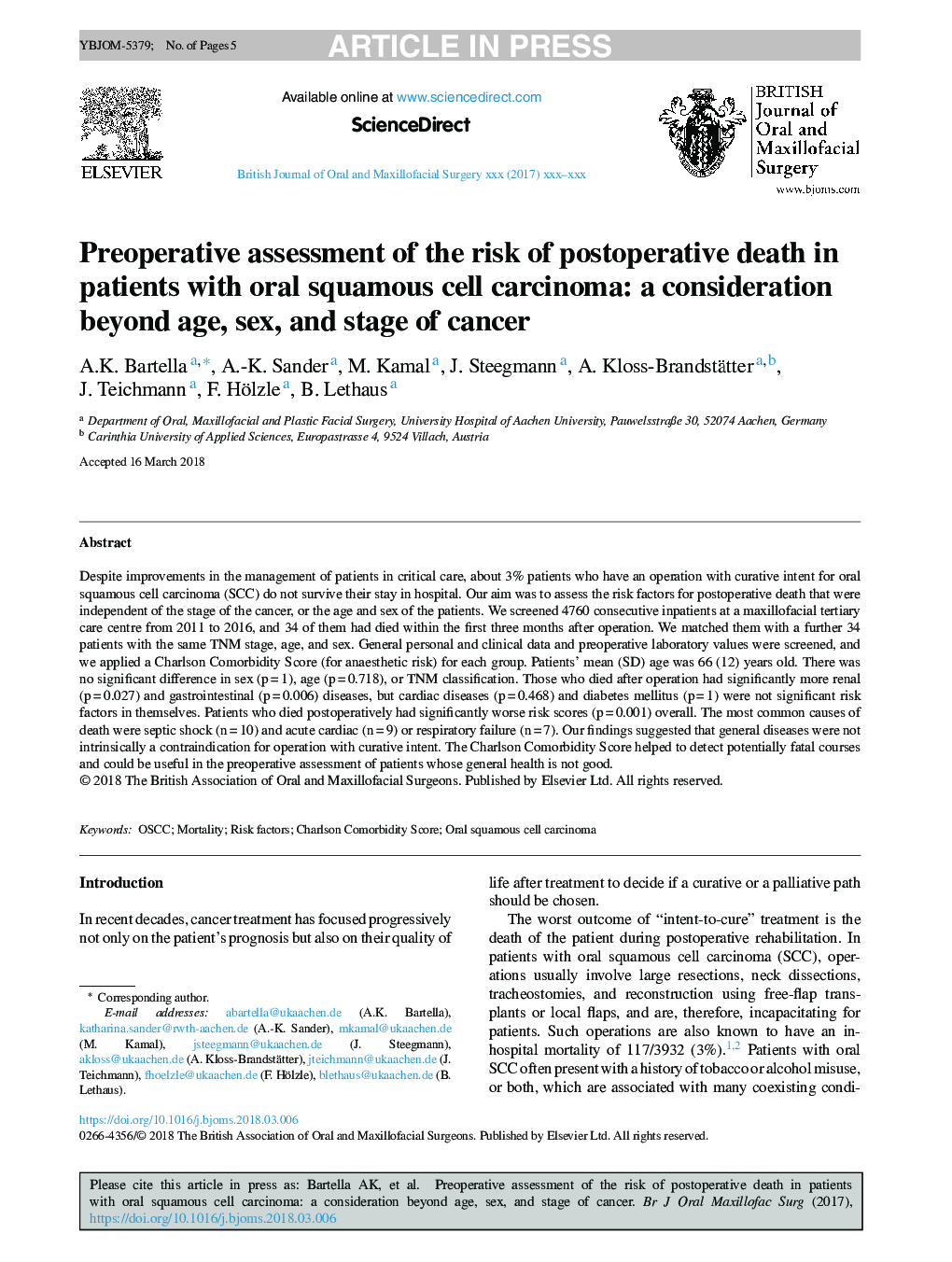| Article ID | Journal | Published Year | Pages | File Type |
|---|---|---|---|---|
| 8696755 | British Journal of Oral and Maxillofacial Surgery | 2018 | 5 Pages |
Abstract
Despite improvements in the management of patients in critical care, about 3% patients who have an operation with curative intent for oral squamous cell carcinoma (SCC) do not survive their stay in hospital. Our aim was to assess the risk factors for postoperative death that were independent of the stage of the cancer, or the age and sex of the patients. We screened 4760 consecutive inpatients at a maxillofacial tertiary care centre from 2011 to 2016, and 34 of them had died within the first three months after operation. We matched them with a further 34 patients with the same TNM stage, age, and sex. General personal and clinical data and preoperative laboratory values were screened, and we applied a Charlson Comorbidity Score (for anaesthetic risk) for each group. Patients' mean (SD) age was 66 (12) years old. There was no significant difference in sex (p = 1), age (p = 0.718), or TNM classification. Those who died after operation had significantly more renal (p = 0.027) and gastrointestinal (p = 0.006) diseases, but cardiac diseases (p = 0.468) and diabetes mellitus (p = 1) were not significant risk factors in themselves. Patients who died postoperatively had significantly worse risk scores (p = 0.001) overall. The most common causes of death were septic shock (n = 10) and acute cardiac (n = 9) or respiratory failure (n = 7). Our findings suggested that general diseases were not intrinsically a contraindication for operation with curative intent. The Charlson Comorbidity Score helped to detect potentially fatal courses and could be useful in the preoperative assessment of patients whose general health is not good.
Related Topics
Health Sciences
Medicine and Dentistry
Dentistry, Oral Surgery and Medicine
Authors
A.K. Bartella, A.-K. Sander, M. Kamal, J. Steegmann, A. Kloss-Brandstätter, J. Teichmann, F. Hölzle, B. Lethaus,
